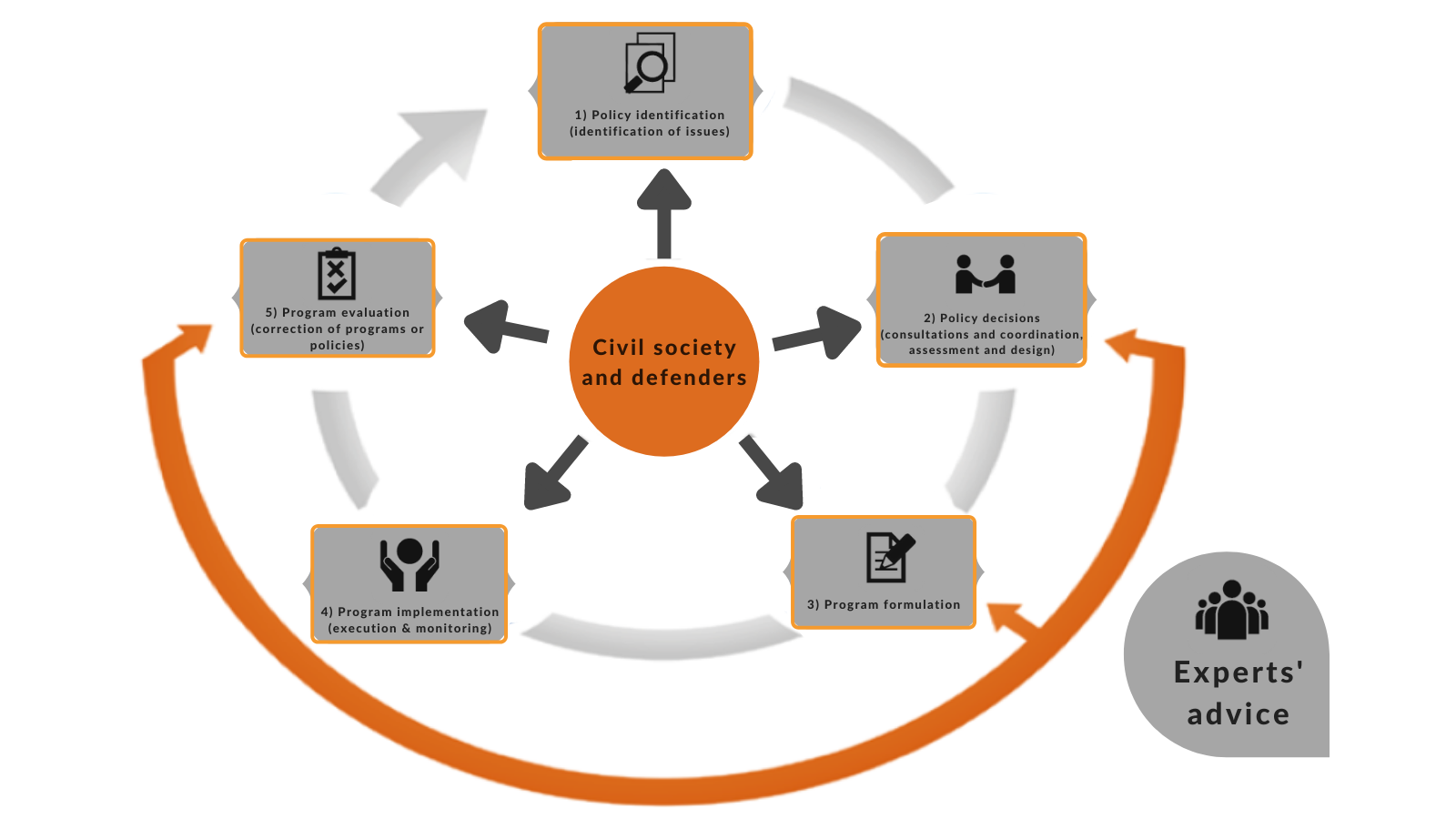Although society as a whole plays a role in the construction of an enabling environment for human rights defence, States and their public authorities are those ultimately responsible for their protection and, more broadly, for guaranteeing the exercise of the right to defend human rights. A wide range of standards and recommendations made by international and regional human rights bodies points out at the obligation of States to adopt measures that guarantee that defenders can defend rights without fear from threats and attacks.
Those recommendations should be applied in a comprehensive way, so to build a safe environment for human rights defence. This starts with the creation of a legal framework and a set of public policies that coordinate actions across institutions, both for prevention of attacks and for quick reaction when these occur.
In practice, we observe though that States have not adopted comprehensive policies to address existing violence against human rights defenders. Only a few of them have put in place some protection mechanisms and they focus on ad-hoc security measures, such as panic buttons, bullet-proof vests, CCTV cameras, sometimes bodyguards and other. Actually, these measures fail to reduce violence against defenders, since they do not address the underlying root causes of the structural violence that put HRDs at risk.
The problem of violence against HRDs is a complex issue that cannot be solved through protection mechanisms that work in isolation from other government and state institutions. It needs to be tackled from different angles, coordinating action from different institutional actors. This complexity is best approached from a public policy perspective.
Protection mechanisms and measures should be part of broader public policies that coordinate laws, instruments and actions aimed at guaranteeing the right to defend human rights.
All public policies on protection of Human Rights Defenders need to include a broad and comprehensive understanding of the Declaration on the Right and Responsibility of Individuals, Groups and Organs of Society to Promote and Protect Universally Recognized Human Rights and Fundamental Freedoms (commonly named UN Declaration on HRDs). They should also further take into account and implement the growing set of standards from later UN resolutions and declarations, as well as from regional bodies.
Acting as roadmaps towards a better environment for HRDs, public policies require careful planning, implementation, regular evaluation and, when necessary, corrections. Technical procedures and expertise are key to offset political influence within the policy-making process – especially if they come from a wide pool, including not only the government, but also both human rights defenders and civil society members at the national and, in some cases, at international level.

Since the adoption of the UN Declaration on HRDs in 1998, a slowly growing number of States have been attempting to adopt laws and mechanisms for the protection of HRDs.
Focus aims at accompanying public debates regarding national public policies for HRDs protection and fostering the translation of the UN Declaration on HRDs into concrete state action, while taking into account the multiple obstacles to the right to defend human rights.
Focus is a useful tool for duty bearers, policymakers, civil society and other actors with a stake in HRDs protection. Through its database, interested audience can access relevant information, stay up to date in terms of policy developments, and seek guidance or references on good practices from other countries.
In brief, Focus aims to be a source of inspiration to build effective national policies for the right to defend human rights.
We are an international non-profit organization that supports human rights defenders in developing their security and protection management strategies. Protection International has been working since 2004 with local partners in over thirty countries across the globe.
© 2021 Protection International | Website by Prosite